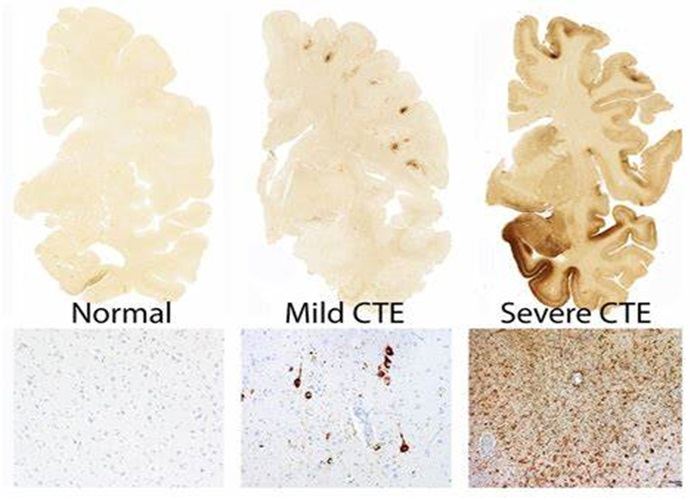A new and concerning connection has emerged in the field of health research. It appears that a family history of mental illness is related to increased aggression in those diagnosed with chronic traumatic encephalopathy (CTE). This revelation has significant implications for understanding the complex interplay between genetics, brain injury, and behavior.
Chronic traumatic encephalopathy is a neurodegenerative disorder that is often associated with repeated head trauma. It has been commonly found in athletes who participate in contact sports such as football, boxing, and hockey. The condition leads to a buildup of abnormal proteins in the brain, which can cause a wide range of symptoms including memory loss, confusion, depression, and in some cases, aggression.
Research has shown that individuals with a family history of mental illness, such as schizophrenia, bipolar disorder, or major depressive disorder, may be more likely to exhibit aggression when they also have CTE. The exact mechanisms behind this link are still being explored. It is possible that certain genetic factors that predispose a person to mental illness may interact with the brain damage caused by CTE in a way that exacerbates aggressive behaviors. For example, genes related to neurotransmitter regulation or brain development might be involved.
This newfound connection has important implications for the diagnosis and treatment of CTE patients. Healthcare providers may need to take a more comprehensive approach when evaluating patients with suspected CTE. In addition to looking at the history of head trauma, they should also inquire about the patient’s family mental health history. This could help in more accurately predicting the likelihood of aggression and other behavioral symptoms. In terms of treatment, understanding this link may lead to more personalized and effective interventions. For instance, if a patient has a family history of a particular mental illness, specific medications or therapies that target that condition might be considered in combination with treatments for CTE.
This discovery also has broader significance for the field of neuroscience and public health. It highlights the importance of understanding the complex web of factors that contribute to brain health and behavior. It may lead to increased awareness and prevention efforts, especially in sports where head trauma is common. Coaches, athletes, and parents may be more vigilant about the long-term consequences of repeated head injuries and the potential role of family mental health history.
In conclusion, the link between a family history of mental illness and aggression in those with CTE is an area of research that warrants further investigation. By understanding this relationship, we can hope to improve the diagnosis, treatment, and prevention of CTE and its associated behavioral issues.
Read more
- How Long Do Bacterial Sinus Infections Last?
- How Do Viral Or Bacterial Infections Cause Diarrhea?
- Top 8 Major Symptom Of Bacterial Pharyngitis


